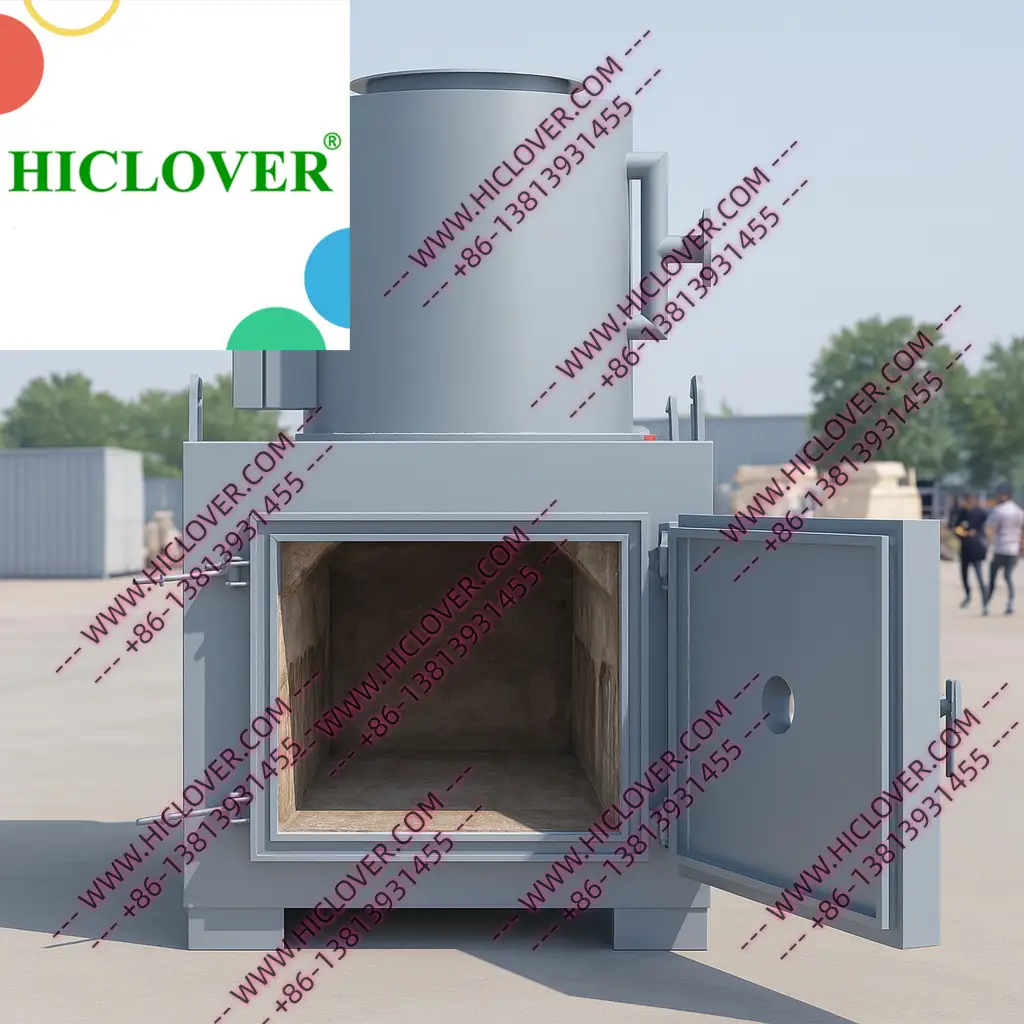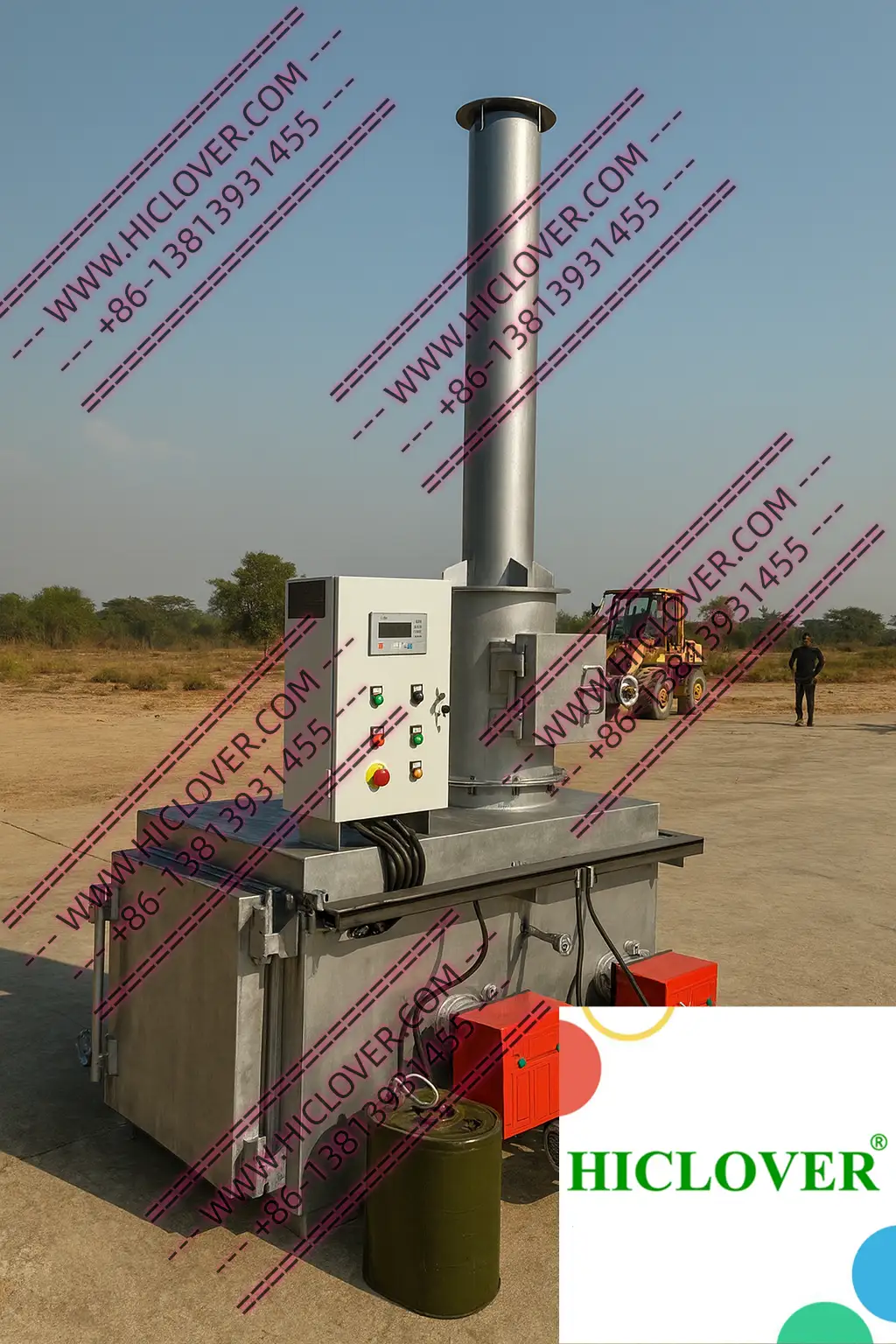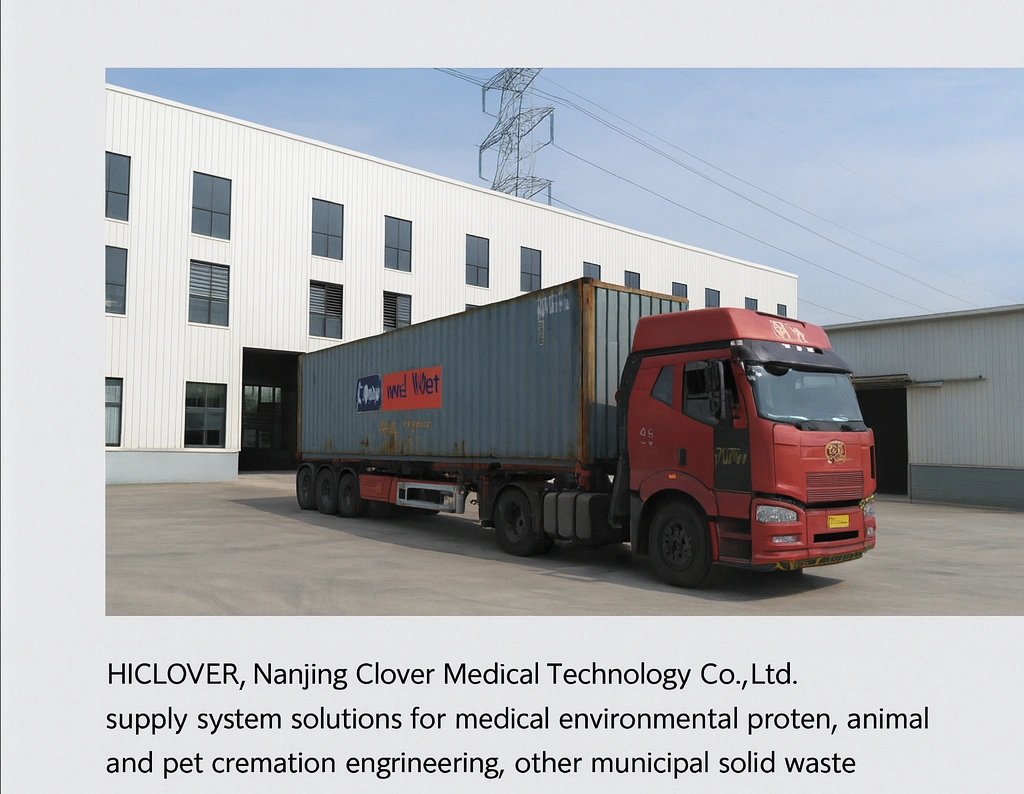United Nations and WHO Initiatives in Medical Waste Incineration: Global Standards and HICLOVER Solutions
Medical waste management remains a critical global challenge, especially in developing regions where healthcare infrastructure is under pressure. To address this issue, international organizations such as the United Nations (UN) and the World Health Organization (WHO) have actively supported the deployment of medical waste incinerators that meet strict technical and environmental standards.
WHO’s Role in Medical Waste Incineration
The World Health Organization has long emphasized the risks of poor medical waste management, particularly the dangers posed by infectious waste, sharps, pharmaceuticals, and pathological material.
-
WHO guidelines recommend the use of dual-chamber incinerators with a secondary combustion chamber operating at ≥1100°C and a minimum 2-second gas retention time.
-
WHO-supported projects in Africa, Asia, and post-conflict regions have introduced medical waste incineration as an immediate and effective solution where centralized waste treatment facilities do not exist.
-
For example, WHO partnered with ministries of health in Sierra Leone, Ethiopia, and South Sudan to deploy incinerators in district hospitals, ensuring safe treatment of infectious biomedical waste.
UNDP and UNOPS Procurement Projects
The United Nations Development Programme (UNDP) and the United Nations Office for Project Services (UNOPS) have funded numerous healthcare waste management projects:
-
UNDP Tanzania supported the installation of hospital waste incinerators across district facilities, ensuring compliance with Tanzania’s National medical Management standards.
-
UNOPS South Sudan launched tenders for containerized biohazard incinerators of 180 kg/hr and 220 kg/hr capacity, designed for safe disposal of high-risk laboratory and hospital waste.
-
These projects typically demand equipment certified under CE and ISO9001:2015 standards, with PLC automation, dual-chamber design, wet scrubber systems, and stack monitoring to reduce emissions.
UN Peacekeeping and Humanitarian Operations
In UN peacekeeping missions such as UNMISS (South Sudan), AMISOM (Somalia), and refugee operations managed by UNHCR, waste incinerators are deployed in camps and field hospitals to ensure biosecurity.
-
Portable and containerized incinerators are particularly valued in these settings due to their mobility, durability, and compliance with international environmental regulations.
Technical Standards Promoted by UN & WHO
Across UN and WHO-supported projects, incinerators are expected to meet:
-
Primary chamber temperature: 800C1000°C
-
Secondary chamber temperature: 1000C1300°C
-
Gas retention time: ≥2 seconds
-
Dioxin and furan emissions: ≤0.1 ng TEQ/m3 (aligned with EU 2000/76/EC directive)
-
Particulate matter emissions: ≤10C20 mg/m3
HICLOVER Incinerators in UN and WHO Projects
HICLOVER incinerators have been deployed in multiple UNDP, UNOPS, and WHO-funded healthcare projects, providing tailored solutions such as:
-
TS30 PLC (35 kg/hr) C Compact, front-loading dual-chamber incinerator for small clinics and rural hospitals.
-
TS200 PLC (180 kg/hr) C CE-certified, PLC-controlled incinerator with a 1.98 m3 primary chamber, ideal for regional hospitals.
-
TS300 PLC (220 kg/hr) C Larger-capacity model with a 2.4 m3 combustion chamber and optional containerized/mobile design, widely suited for UN humanitarian operations.
Each system is equipped with Italy-brand burners, intelligent fuel-saving functions, automatic alarms, and optional wet scrubbers, aligning with WHO recommendations and UN procurement specifications.
Conclusion
The collaboration between the United Nations and WHO has been pivotal in improving global healthcare waste management, particularly in low-resource and crisis-affected regions. By supporting the deployment of environmentally sound medical waste incinerators, these organizations ensure that hospitals and laboratories can safely destroy infectious waste, protecting both public health and the environment.
HICLOVER incinerators, with their proven compliance to international technical and emission standards, continue to be a trusted solution in UN- and WHO-backed projects across Africa, Asia, and beyond.
For more information, visit www.hiclover.com or contact [email protected].









